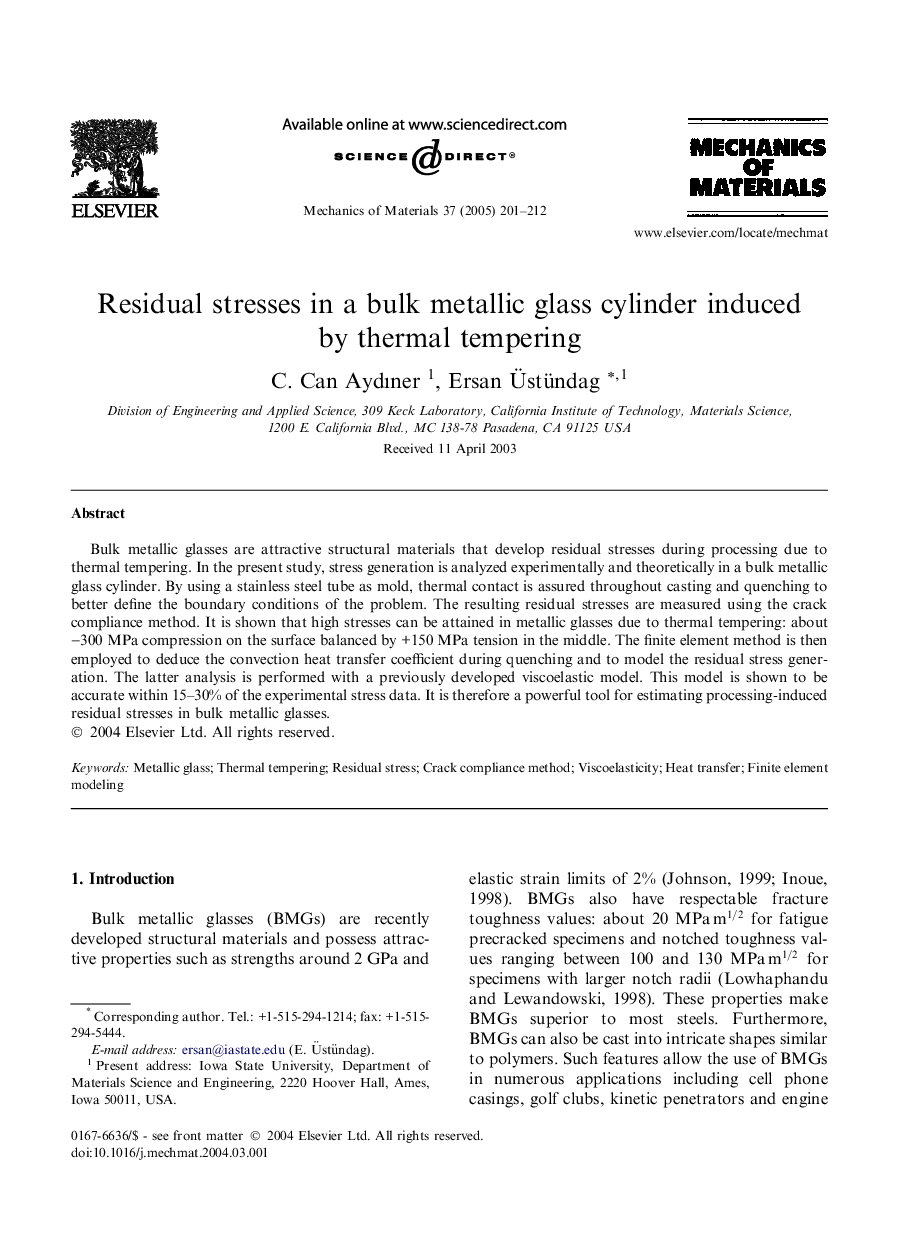| Article ID | Journal | Published Year | Pages | File Type |
|---|---|---|---|---|
| 9711687 | Mechanics of Materials | 2005 | 12 Pages |
Abstract
Bulk metallic glasses are attractive structural materials that develop residual stresses during processing due to thermal tempering. In the present study, stress generation is analyzed experimentally and theoretically in a bulk metallic glass cylinder. By using a stainless steel tube as mold, thermal contact is assured throughout casting and quenching to better define the boundary conditions of the problem. The resulting residual stresses are measured using the crack compliance method. It is shown that high stresses can be attained in metallic glasses due to thermal tempering: about â300 MPa compression on the surface balanced by +150 MPa tension in the middle. The finite element method is then employed to deduce the convection heat transfer coefficient during quenching and to model the residual stress generation. The latter analysis is performed with a previously developed viscoelastic model. This model is shown to be accurate within 15-30% of the experimental stress data. It is therefore a powerful tool for estimating processing-induced residual stresses in bulk metallic glasses.
Keywords
Related Topics
Physical Sciences and Engineering
Engineering
Mechanical Engineering
Authors
C.Can Aydıner, Ersan Ãstündag,
